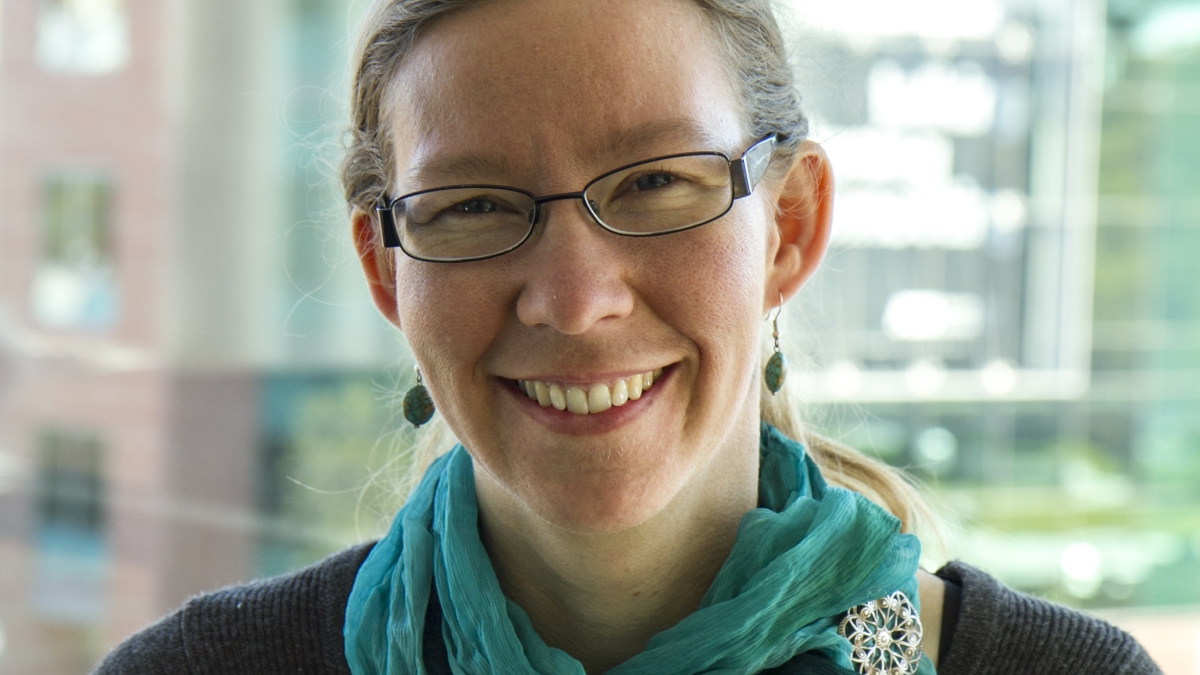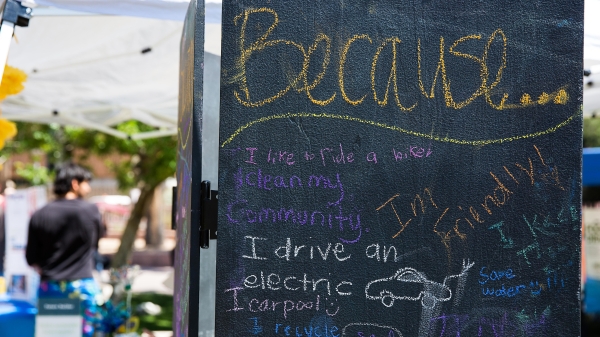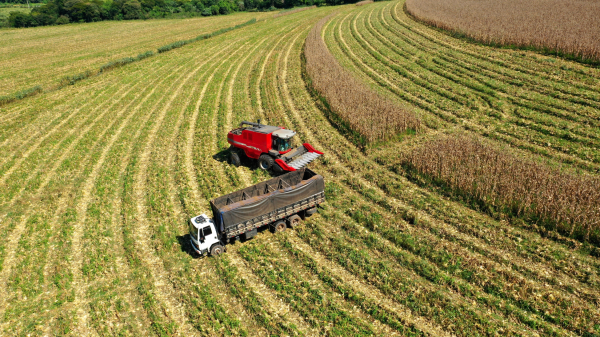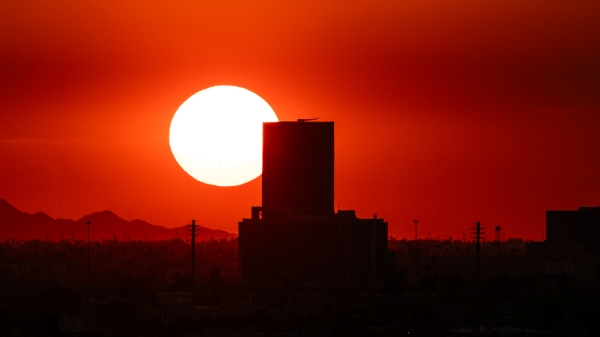ASU scientist looks ahead to UN climate talks with tempered optimism

Sonja Klinsky, of the Julie Ann Wrigley Global Institute of Sustainability and ASU's School of Sustainability, says things are progressing well ahead of the UN Climate Change Conference later this year, but that people should have realistic expectations.
Hope has a way of evaporating when Sonja Klinsky talks about the international pursuit of global climate change.
And it’s not because the senior sustainability scientist in Arizona State University’s Julie Ann Wrigley Global Institute of Sustainability and assistant professor at the School of Sustainability is down on the process – quite the contrary. It’s just that she’s a realist.
Having recently returned from a United Nations meeting in Bonn, Germany, to help fine-tune a draft of a global climate pact, Klinsky said that things are progressing well ahead of the United Nations Climate Change Conference to be held in Paris later this year.
There’s a lot of hope attached the gathering, which could result in a historic climate-change pact between every country on the planet. But therein lies the problem: Some people are expecting too much from this conference – which won’t offer an “easy button,” of sorts, that can remedy all of the globe’s climate-change issues.
“What I’m expecting is a fairly simple agreement that holds spaces for further development of these issues,” Klinsky said, reminding that every agreement has to be a consensus from the world’s governments. “That, for me, would be a strong agreement.”
Klinsky, an expert on equity in international climate negotiations, will be a part of the November and December conference in France.
Looking ahead, she offered the four key factors being discussed for a pact for global climate-change standards.
Mitigation
"So, who's going to cut how much of some capacity," she said. "And, more importantly in that, (determining) a process for steadily increasing those commitments. So there’s not only how much each country will commit now, but what kind of a process is going to be in place to make sure that increases over time. That would be a great thing in mitigation."
Adaptation
"(This) would be either how much money do we need to support countries that are going to need adaptation support or other kinds of in-kind contributions," Klinsky said. "And how are we going to make sure that increases to the level that is sufficient, because it probably won't be sufficient going in. Similar to mitigation, you have both what's going to be up front and what kind of a process are we going to have where we can systematically, over time, make sure that those needs are appropriate, happening and sufficiently supported."
Finance and support
"There are going to be certain countries who could make contributions, but they can't afford to or they don’t have the technology to," she said. "So there’s going to have to be some kind of provision in the agreement for facilitating support so that we get the full level of mitigation and adaptation needed by countries that could do something but just can’t afford it; they don’t have the resources to do it. And, again, I’m expecting some kind of upfront element there. But over time some sort of a mechanism to make sure we’re constantly revising this."
Technology
"And the technology question is huge, in terms of technology transfer, in terms of making sure that countries have the technology they need, making sure that we’re facilitating a flow of technology as opposed to blocking it. And also creating innovation," Klinsky said. "So, there’s a tension, always, between spreading technology around freely and creating incentives to innovate. We have to somehow find a balance there where companies think they can make some money by innovating, and yet those technologies are freely available to development countries. So we’re not going to solve that one this time around. What we probably will do is continue the support for thinking about how we’re going to deal with technology in the future."
More Environment and sustainability

Earth Day celebrations focus on making our planet a priority
On April 22, Earth Day is celebrated across the country and in nearly 193 countries around the world. Arizona State University…

ASU scientist studies how bans, regulations on food technology affect consumer acceptance, perceptions
How do people process scientific developments with outside influences, warnings, biases and others’ opinions filtering in? That…

ASU team's research leads to new law protecting mobile-home dwellers
Arizona Gov. Katie Hobbs signed a law earlier this month that guarantees mobile-home owners’ right to install cooling measures,…